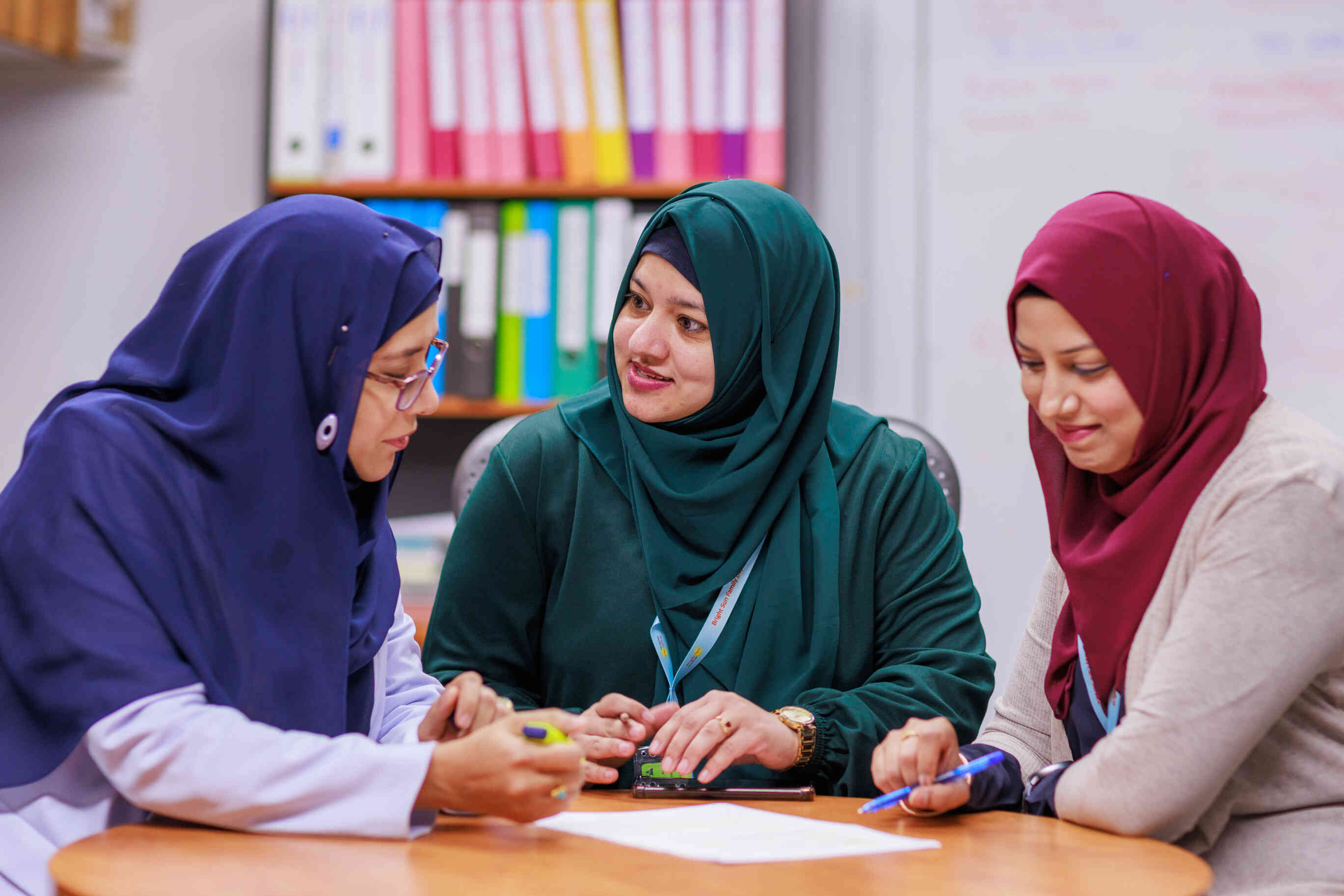When educators regularly practice critical reflection, they learn about themselves and their professional identity.
This knowledge has the potential to strengthen and build their self-confidence and the confidence of teams in early learning services and schools.
Why reflective practice?
Critical reflection and ongoing professional learning is one of the eight principles of the Early Years Learning Framework and My Time Our Place. They both underpin quality practice.
The National Quality Framework talks of intentional teaching, where educators are deliberate, purposeful and thoughtful in their decisions and actions.

Educators talking with each other at a table
What is reflective practice?
Critical reflective practice is about reviewing events and experiences and then thinking about the implications of what you have observed. Did it meet the outcomes you had planned? How could it be strengthened or changed to improve practice as well as outcomes for children?
It requires educators to be intentional in their teaching and thoughtful, purposeful and deliberate in their decisions and actions.
What is critically reflective practice?
This takes reflective practice even deeper, asking us to consider if the experience is consistent with our beliefs, values and philosophy. It also asks us to examine our relationships and think about the issue of power and how it operates within the relationship and context. The Be You Planning for empowerment: Growing a mentally healthy generation resource has more information.
Some questions to reflect on might include:
- What is my understanding of the child and family?
- If I look at this from their perspective what might I discover?
- What theories, philosophies and understandings shape and assist my work?
- Are there other theories and knowledge that might help me understand what happened?
- Who is advantaged when I work in this way?
- Who is disadvantaged?
- What questions do I have about my work?
Critically reflective practice requires educators to unpack what challenges and confronts them, as well as what they’re curious about.
What needs to be in place for critically reflective practice to happen?
It is only in a safe, respectful and empowering environment that these types of honest reflections can occur.
An empowering environment is one where there is continuous planning for quality improvement that is collaborative and transparent. It’s where critical reflection, intentionality and educator actions connect to philosophy, pedagogy, practices, processes and curriculum. Discover the Be You Planning for empowerment: Growing a mentally healthy generation resource for more information.
Opportunities, time and space need to be created so all educators can contribute and debate. This requires leadership to enable a culture of inquiry through allocating resources at the organisational level.
How does critical reflective practice support your wellbeing?
Knowing why you are doing something leads to being open and challenged and gives you the chance to rethink, reflect and feel comfortable with your decision. The team no longer sees questions as a criticism of their work but rather as an opportunity to ‘think’ differently and be more confident in their practice.
During critically reflective practice, educators learn about themselves and their professional identity. They understand the thoughts, values, beliefs, motivation, emotions and depth of knowledge they bring to their everyday judgement, which contributes to wellbeing.
Join a Be You Conversation to discuss with other educators and Be You Consultants how reflective practice supports wellbeing in your learning community.